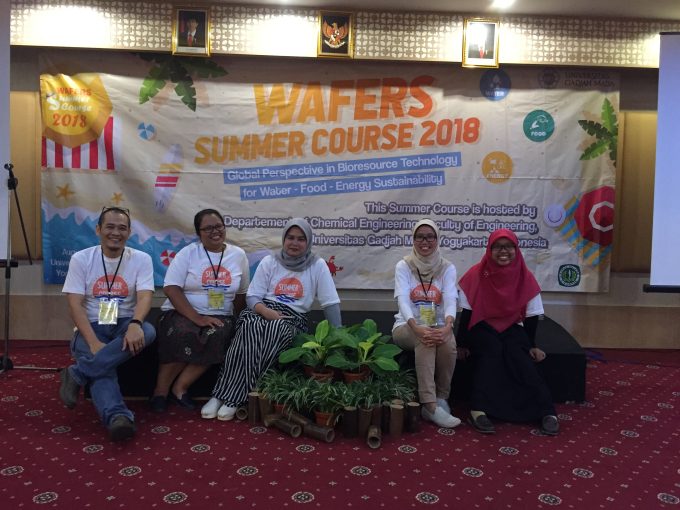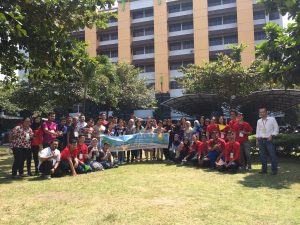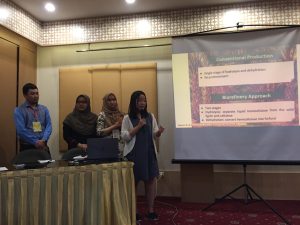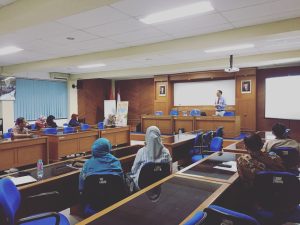
The inaugural WAFERS Summer Course, held offline from August 7 to 16, 2018, at the Department of Chemical Engineering, Universitas Gadjah Mada (UGM), focused on “Global Perspective in Bioresource Technology for Water–Food–Energy Sustainability.” With 26 participants from Thailand, Malaysia, Japan, France, Australia, and the Philippines, the program offered a comprehensive approach to addressing challenges in resource efficiency, climate action, and sustainable agriculture, while promoting affordable clean energy and water conservation.
The course covered a range of critical topics such as bioresource management, biodiversity conservation, renewable energy solutions, and advanced technologies like algae-based biofuels, biogas production, and pyrolysis. These topics were designed to provide participants with the knowledge needed to solve global sustainability challenges by reducing carbon emissions and supporting clean water access.
Field visits played an essential role, offering firsthand experience at the Pusat Inovasi Agroteknologi Universitas Gadjah Mada (PIAT UGM), Gamping Biogas Facility, Sukunan Village, Wastewater Treatment Facility in Sewon (IPAL Sewon), and the Code River community. Participants saw the practical applications of technologies that contribute to sustainable water management and energy access. Visits to cultural landmarks like Borobudur Temple, Ketep Pass, and Gunung Kidul beaches also highlighted the importance of ecotourism and preserving natural heritage.
Leisure activities and cultural programs, such as performances at Ulen Sentanu and the Yogyakarta Palace, gave participants an opportunity to experience Indonesia’s rich heritage, reinforcing the value of cultural diversity and community resilience. The Ramayana Dance performance was a particularly memorable experience, connecting participants with Indonesia’s artistic traditions.
Fifteen esteemed speakers from leading universities such as the University of New South Wales, University of Hawaii, Hanoi University of Science and Technology, and Universiti Teknologi MARA enriched the course with their expertise. By focusing on critical issues like sustainable development, biomass conversion, and green technologies, WAFERS 2018 reinforced the importance of collaboration for achieving global sustainability goals and fostering resilient communities.




